Member of the Month: Sean A. Valles
Selena Ortiz, Tia Palermo, Muntasir MasumSean A. Valles is an Associate Professor of History, Philosophy, and Sociology of Medicine, with an appointment in the Michigan State University Lyman Briggs College and the Department of Philosophy. His research spans a range of topics in the philosophy of population health, from the use of evidence in medical genetics to the roles played by race concepts in epidemiology. He is author of the 2018 book, Philosophy of Population Health: Philosophy for a New Public Health Era. He is also Director of the MSU Science and Society @ State Program, supporting interdisciplinary faculty collaborations that join the humanities, arts, and sciences.
Please share how your work relates to the issues and concerns that are emerging as a result of the COVID-19 pandemic. We’d like to hear your thoughts and understandings about how COVID-19 disproportionately impacts vulnerable communities, such as the homeless, undocumented, low-income, and racial/ethnic minority populations.
I wrote an article on just this issue (https://kiej.georgetown.edu/predictable-inequities-covid-19-special-issue/). I use a Fundamental Cause lens on the issue, to draw out the fact that the disproportionate harms to low-income folks, Black folks, etc. is very much in keeping with long-established patterns that the presence/absence of certain social resources affects health across different contexts). One twist I add (since others have written about fundamental causes and COVID-19) is that I use these points to push back against exaggerated claims about how unexpected or unprecedented the pandemic has been. I think that sort of rhetoric unintentionally or intentionally undermines accountability of the people/institutions that failed to prepare for the pandemic, and also to absolve those people/institutions from the responsibility to prepare for the next pandemic. For instance, massive outbreaks at meat processing plants should be no surprise given that this industry has long had unsafe working conditions, and gotten away with in part by hiring socially marginalized workers (immigrant workers; Black or Latinx/a/o workers).
Current population health efforts are focused on containing the spread of the virus. Going forward, what population health investments and policies are necessary to best prepare for and prevent future public health catastrophes?
I could go on all day about this, but one that I think about a lot is support for ‘essential workers’. I am hopeful that we have reached a cultural inflection point where we cannot easily forget which workers our society cannot survive without in the short term. It is both shameful and conspicuous that many of these workers (daycare workers, farmers, grocery store stockers, etc.) are also some of the lowest paid members of society. It has been unforgivably cruel to (often, but not always correctly) designate these workers as doing jobs we cannot live without, but then offer them meager workplace safety protections, a threadbare economic safety net if they are furloughed, and continued low pay. We owe safe working conditions and living wages to essential workers at all times, but we also must be better prepared to keep providing these during the next pandemic or other catastrophe.
What are some of the long-term implications of COVID-19 on population health?
I think this question was maybe meant to be about health outcomes, but the way it’s phrased makes me wonder what the implications will be for population health as a field of study and as a theoretical framework. If population health professionals don’t use the post-pandemic era as an opportunity to doggedly and systematically push for such an approach then I think it would be a terrible failure for the field and for society. The enormous variation of policy approaches, successes, failures, health disparities, etc., have all made it easier than ever to see how and why we must think about social structures, living conditions, the nuances of culture, health disparities, etc., in order to equitably promote health.
Tell us about your professional journey and your main area of training.
I am a philosopher of population health, working at Michigan State University. And I followed a strange and twisting path to get here. Basically, it’s a story of restlessly wandering around and eventually finding population health science as a worldview that resonated with me.
I come from a family of health science professionals. While I was growing up my father worked in clinical trial management and biology lab management. My mother is a nurse from a huge family of nurses. I was a bookish kid who got into the Hot Zone era of fiction and nonfiction popular medical/public health books. I was 12 when the Hot Zone came out in 1994 and for a long time I declared I wanted to be “a virologist or an epidemiologist”. I ended up getting into philosophy in high school, went on to get a BA in classics, then swerved back toward science by getting a PhD in History and Philosophy of Science with a doctoral minor in genetics. I had been specializing in the conceptual and evidentiary challenges of figuring out why some genetic diseases become common among certain populations but not others. Throughout my studies, I researched and taught history and philosophy of public health work, like using Nancy Krieger’s work to teach the philosophical complexities of causation. In 2012, not long after I took my current job at Michigan State U., I wrote a paper about the conceptual and practical challenges of heterogeneous subpopulation-level risks within the blunt racialized populations like “African American” and “White” (e.g. hypertension risk differs widely between US-born Black folks and various foreign-born Black US subpopulations). That paper got me invited to be a summer visiting scholar at the U. of Edinburgh Centre for Population Health Sciences. I worked with Raj Bhopal on some research about the health of mixed-race folks, and with Vittal Katikireddi on the interactions between ethical questions and epistemic/evidentiary questions in population health. While there, and afterward, I grew increasingly fascinated by the notion of “population health science”.
The concept of population health science intrigued me as somehow both very real and palpable, yet also really hard to articulate and differentiate from other views. Eventually I got to a point where I felt like I could contribute something to the world by synthesizing and building up the philosophical ideas built into population health science.
So I wrote a book that came out in 2018: Philosophy of Population Health (https://www.amazon.com/gp/aw/d/036735862X). My angle is that population health science already has a philosophy, and my job is to say: population health science is a distinct thing, it has a sophisticated philosophy (albeit with lots of internal debates), and most importantly that philosophy is basically right.
What is the general focus of your current research? Can you summarize for us something you’ve been working on recently?
Building off of my book’s work, I am sort of a professional advocate for the philosophical merits of a population health approach to various problems in the world. I don’t think there’s another research community or theoretical framework out there that has a better approach to the ethical and evidentiary complexities of population health.
I’m working on my second book. It’s going to give a population health ethics perspective on what it would look like to build a healthier more ethical US society in the upcoming post-pandemic era. I feel compelled to write it since I’m desperately worried we’ll go try to ‘go back to normal’. As almost anyone who works on US population health can tell you, the pre-pandemic status quo was not good. Compared to peer countries, US health was already worse by most measures, and the healthcare more expensive. We can and should do so much better than what we were doing in 2019.
So my book will try to get people thinking about the ethical consequences of the ways that health is largely from the way we’ve built the tangible and intangible features of everyday life. For instance, I’ll have a chapter on policing and mass incarceration, since those have finally been getting more attention as social harms generally, but not enough scrutiny for being sources of unethical health harms. Mass incarceration drains economic resources, breaks up families, and has many other harms that all far disproportionately afflict poor folks and Black folks. These kinds of inequitable harms have always had health consequences for populations, though the waves of COVID-19 hitting prisons makes the health harms more visible and riper for public discussion.
How is interdisciplinary work necessary for the topics you study?
Interdisciplinarity has always been important to my work. Even in graduate school, in my interdisciplinary (history and philosophy of science) program, I took as many credits as I could in other departments.
Eventually interdisciplinarity became an explicit topic in my research program. One of the things I conclude in my book is that one of the hidden foundation blocks of population health science is a tacit commitment to why I call interdisciplinary humility. It’s not usually stated explicitly in population health work, but I think a population health approach demands that we be humble about the limits of any single discipline’s ability to make sense of populations’ health. Sociology of health, many branches of clinical medicine, epidemiology, public health ethics, innumerable religious or other cultural systems about the meaning of community well-being, etc. all have something to add to our understanding of population health in general or for a particular population. Population-level health is just too big and complex a thing for any discipline to have a vantage point where it can somehow see everything. I think public/population health scientists broadly are at their worst when they assume that clinical medicine, or epidemiology, or whatever other discipline has the best or ultimate understanding of health. In the philosophical work I draw from (including feminist bioethics work by Anita Ho, https://www.utpjournals.press/doi/abs/10.3138/ijfab.4.2.102), humility about the limits of our knowledge is tied to a willingness collaborative with others. I.e., humility means recognizing our limits, then working together to build the knowledge that is otherwise out of reach to single disciplines or to single researchers.
Why did you decide to become a member of IAPHS, and how does IAPHS help you to advance the work that you do?
I love the sense of intellectual community. And as someone who really believes in interdisciplinary population health science, I feel a desire and even a sense of duty to try to help a society devoted to fostering something I care about so much.
I am also very excited about the building of the IAPHS library resource. I am part of the membership committee and participated in the conversations about how and why to build such a resource. From my perspective as someone who has tried to summarize and synthesize patterns in population health science, one of the biggest of challenges of the field is how it’s interdisciplinarity makes the literature very diffuse and hard to get a handle on. I think it is a fantastic thing that IAPHS is gradually creating a library that will allow members to search for information on specific topics, and just to generally have a resource for population health science research.
We’d love to hear more about your personal interests! Favorite population health relevant academic/news/etc. article(s)
This is such a hard choice. One that’s always near the top of my list is Onyebuchi Arah’s “On the relationship between individual and population health” (https://pubmed.ncbi.nlm.nih.gov/19107577/). It’s a piece by a population health scientist published in a philosophy journal, and it’s some of my favorite philosophical work on health.
Favorite movie, band, non-fiction, book, etc.
I find listening to Run the Jewels or The Coup puts me in the headspace for writing population health science philosophy. Their beautiful accounts of ugly structural inequities helpfully force me to ask myself what my ideas can add to understanding or responding to those sorts of inequities.

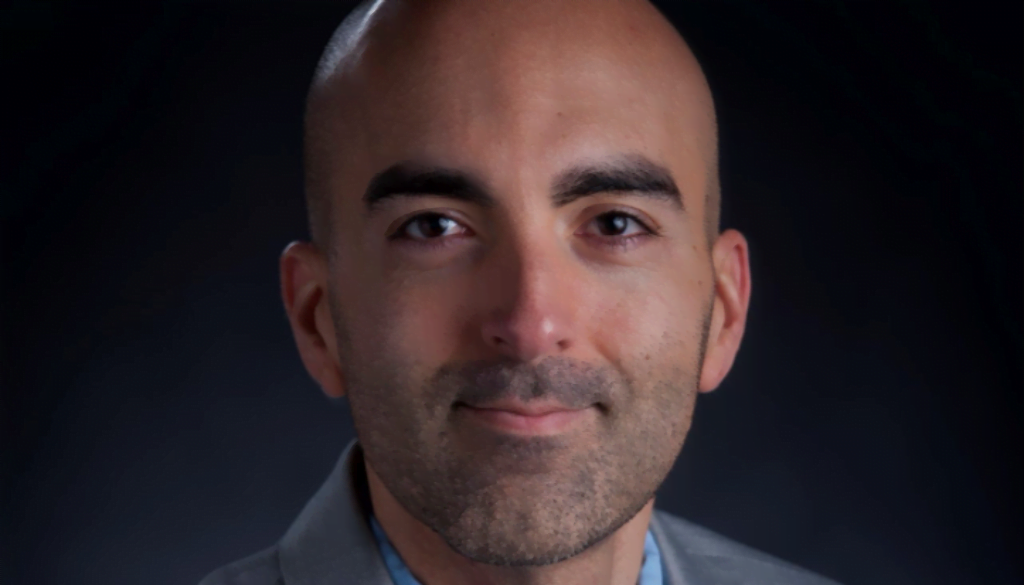
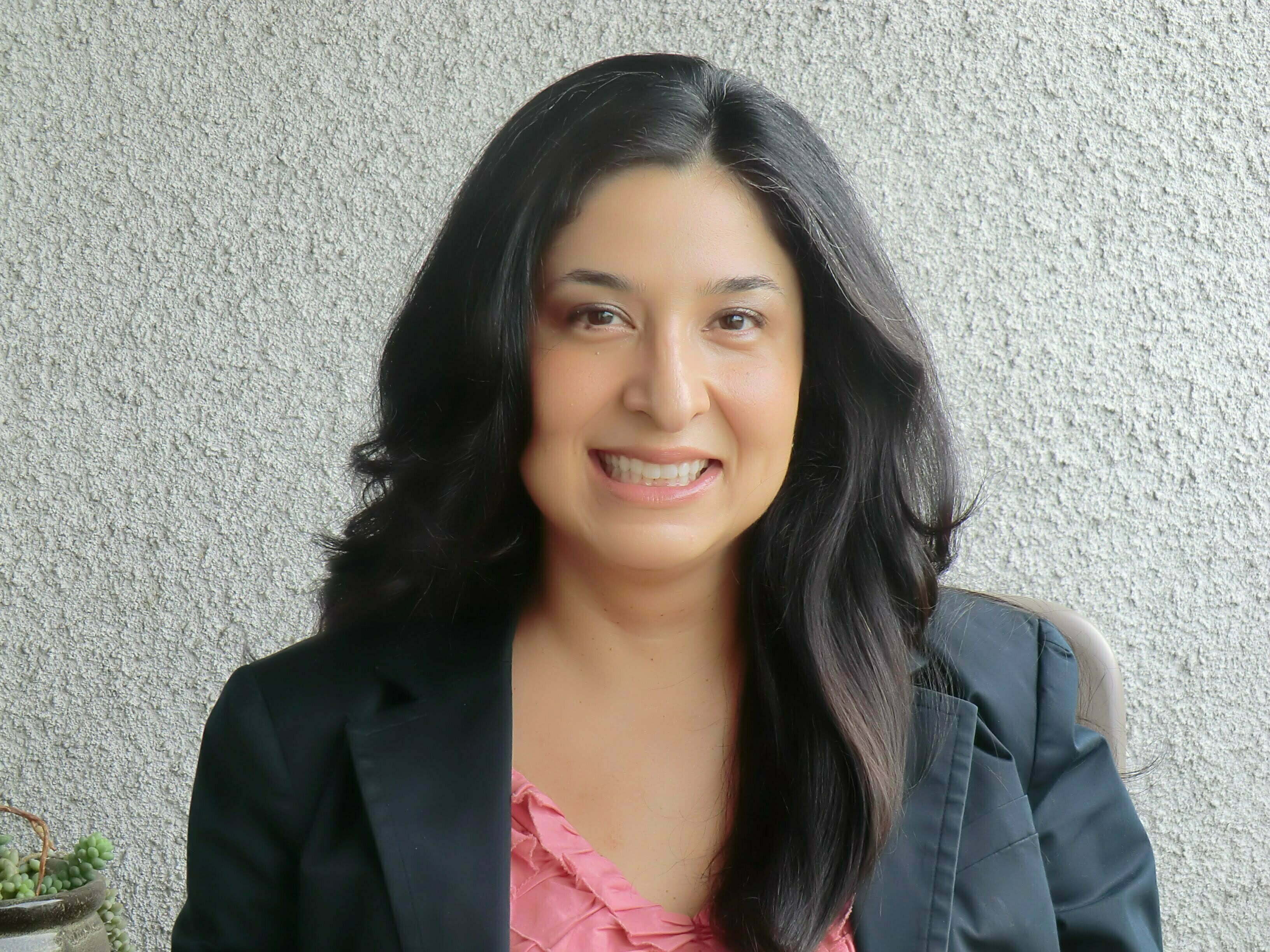
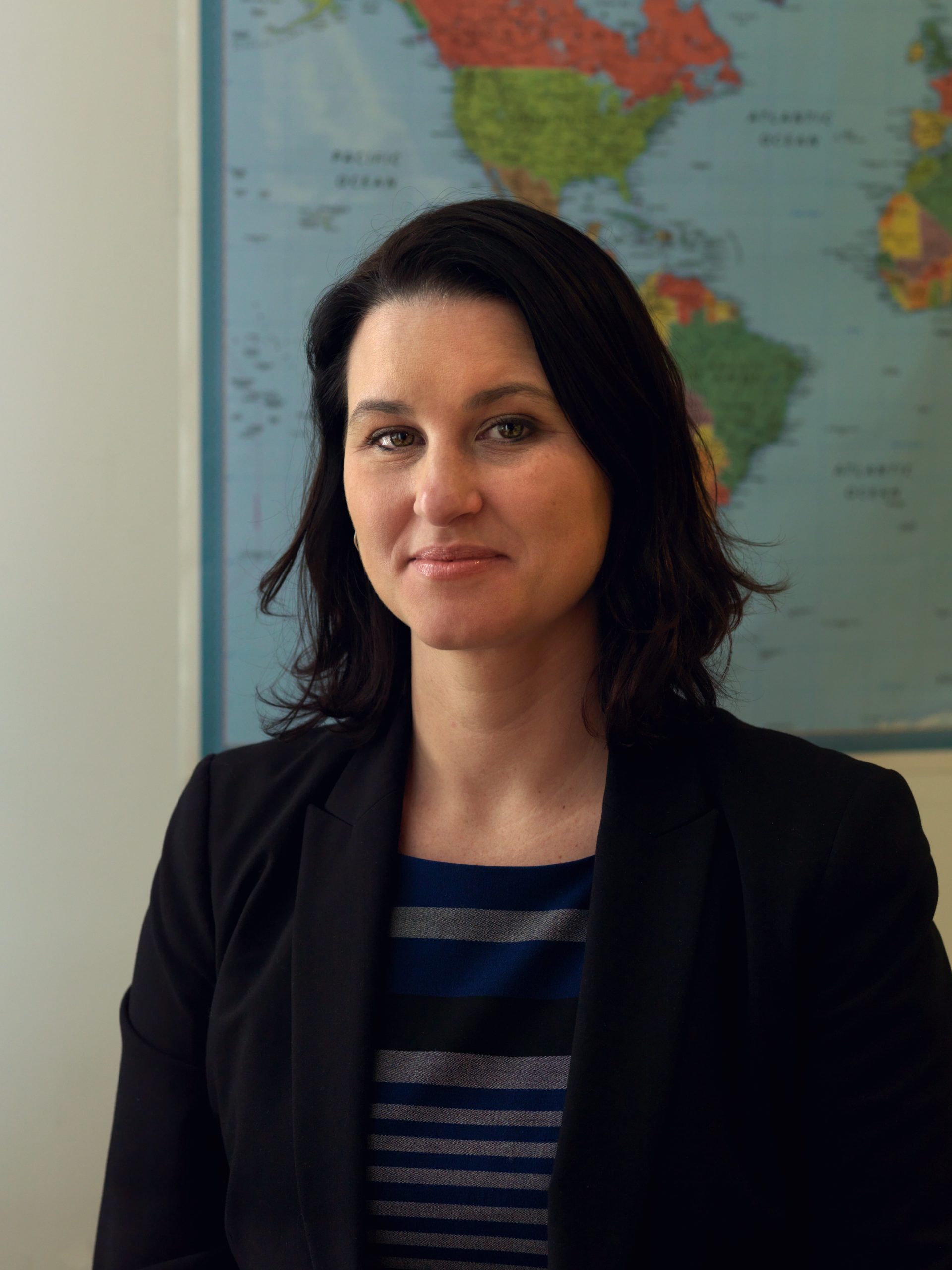
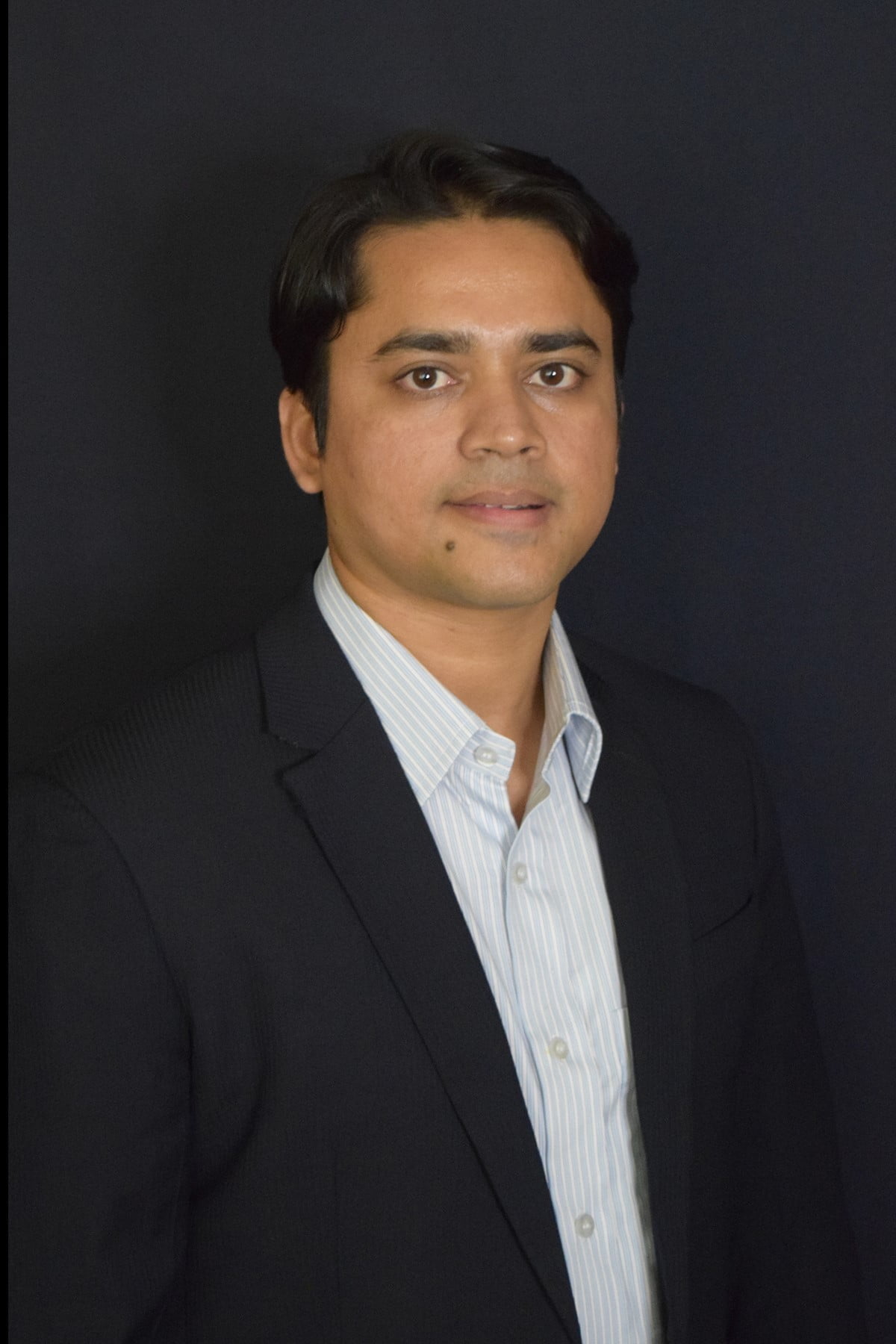
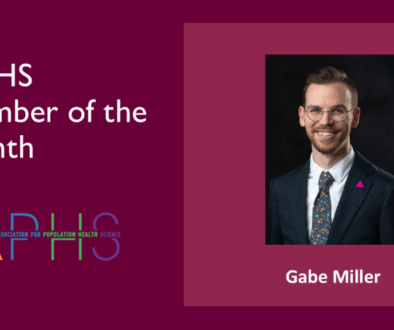
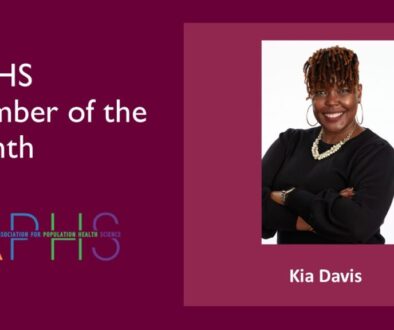

All comments will be reviewed and posted if substantive and of general interest to IAPHS readers.